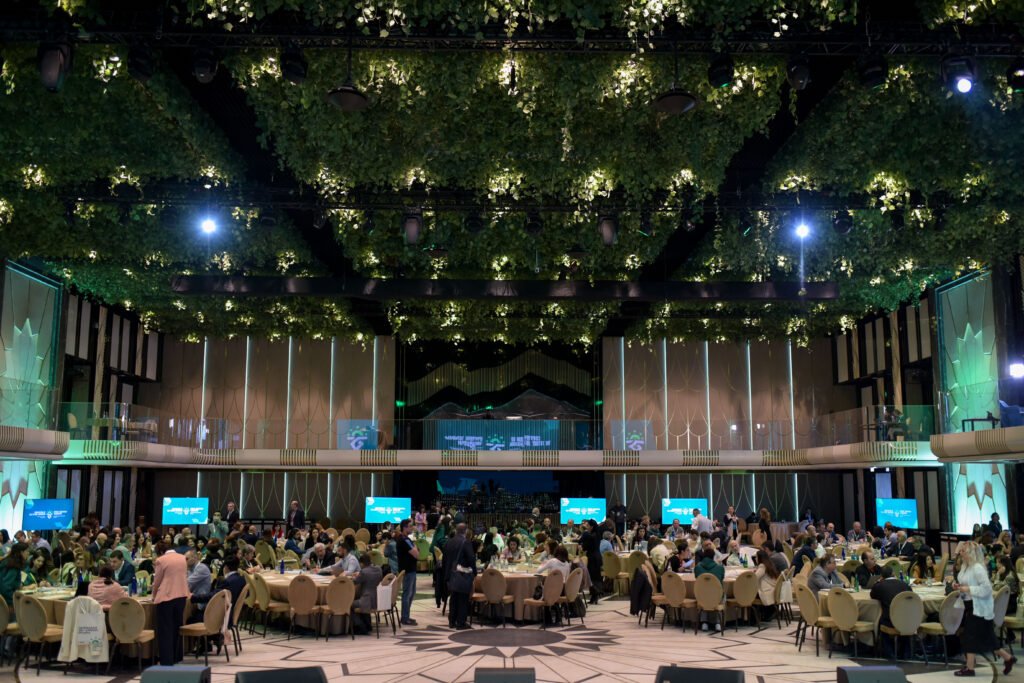
YEREVAN—The first pan-Armenian citizens convention was held in Yerevan this week and addressed three goals defined by The Future Armenian initiative: historic responsibility, Armenia-Diaspora unity and population growth.
The convention, which had been in the works for the past year, brought forth a new format for discussions and solutions to pan-Armenian issues.
The “Future Armenian” is a public initiative based on the “citizen’s assembly” model of participatory democracy. The vision of the initiative is to create an atmosphere of collective consciousness and mutual understanding around the sustainable development of Armenia and the Armenian nation. A group of experts voluntarily joined the initiative to identify the existing issues and come up with effective solutions. About 112,000 people initially applied to participate in the initiative, and around 1,000 of those helped to define the 15 goals. Another 200 participants from Armenia and the Diaspora were pre-selected from the general applications through a transparent lottery. Several participants selected from Artsakh could not travel to Yerevan because of the blockade.
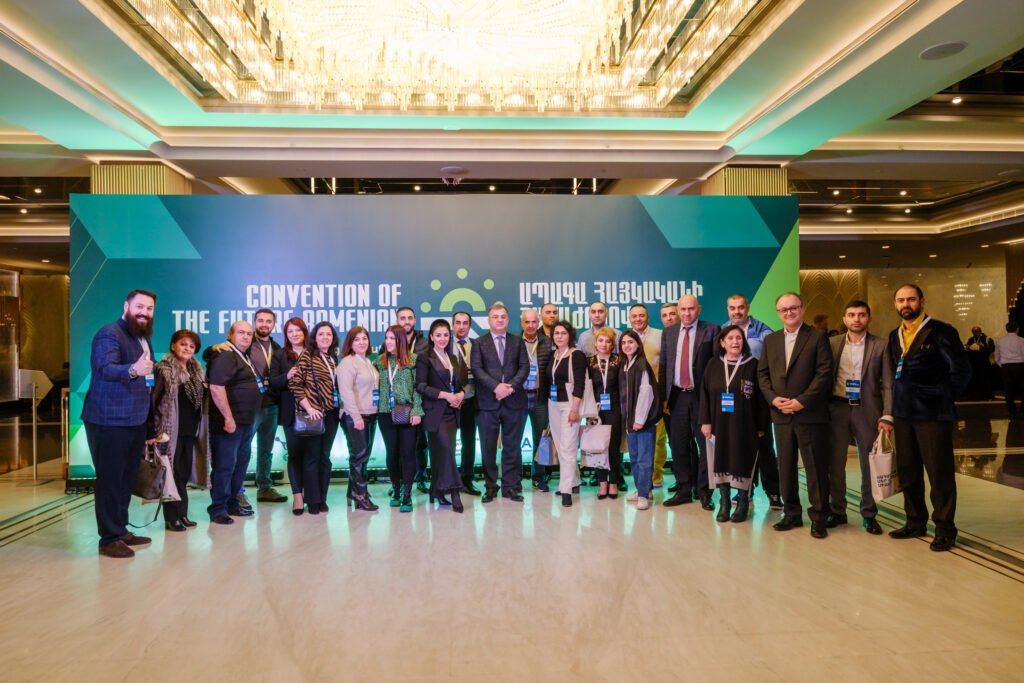
During the opening ceremony on March 10, there were welcoming remarks by Future Armenian Foundation executive director Artak Apitonyan and co-founders Noubar Afeyan and Ruben Vardanyan. “The blockade of Artsakh showed that it is a lie that an Armenian thinks only about eating. Instead, an Armenian has a longing for discussing ideas. One must believe and realize one’s importance as a person. It cannot be done just by filling stores with food; the concept of the idea is important. Without it, nothing will work for us. Respect for knowledge, for work, for national traditions and values is highly important, I am sure that nothing will be achieved without them,” said Vardanyan during a video call from Artsakh, which has been under blockade by Azerbaijan for over three months.
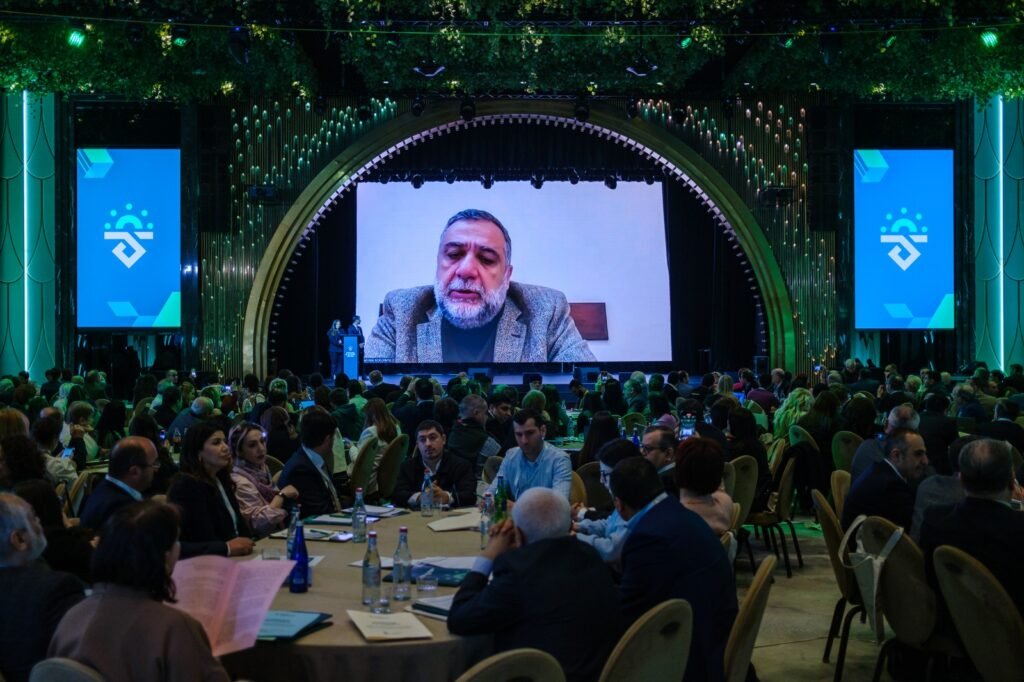
The first day of the convention was dedicated to discussions and resolutions surrounding historic responsibility. The expert committee was led by Archbishop Khajag Barsamian of the Eastern Diocese of North America.
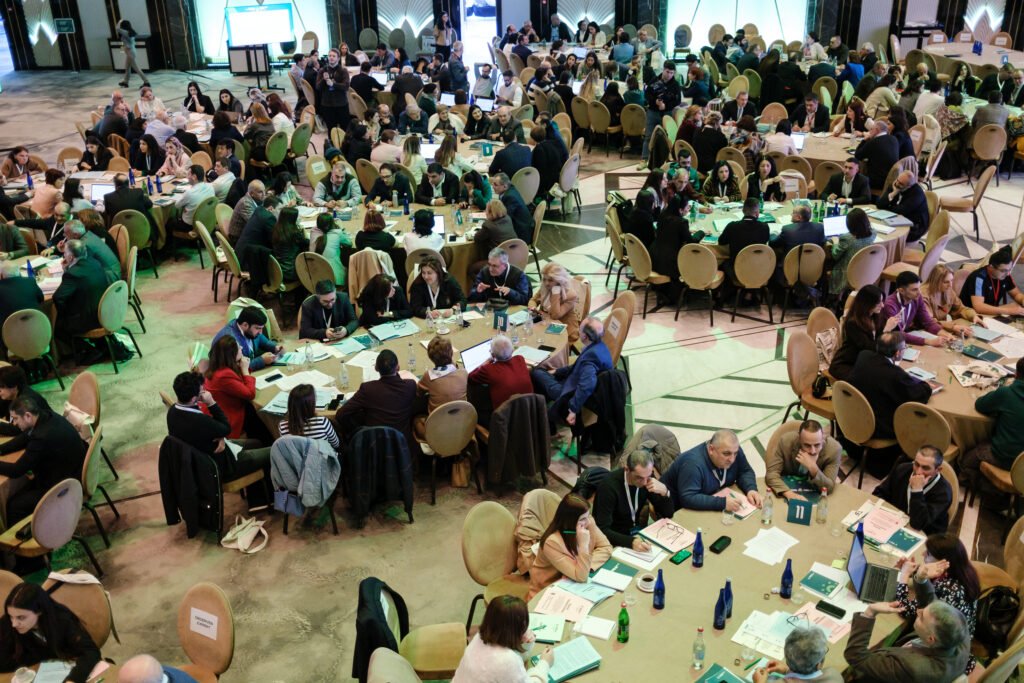
During the pre-convention discussions, experts singled out the Armenian Genocide as a priority in the context of historical responsibility. According to the group, pursuing the recognition and condemnation of the Genocide is not solely a matter of tribute to the past, but a current concern that threatens the existence of the Armenian people and statehood. They urged clarification of the historical responsibility of Armenians relative to the struggle and demands around Genocide recognition. The group suggested outlining clear actions and methods of implementation. Among those would be the establishment of an anti-defamation human rights institute-mechanism, which can fight against any manifestation of genocide denial, as well as an online coordination council for the Genocide recognition process to synchronize the work in all communities.
The majority of participants expressed that the efforts aimed at the recognition of the Genocide have been mainly effective, although there are areas that could be improved. Today, however, pan-Armenian efforts should be directed primarily toward the solution of existing security issues in Armenia and Artsakh.
The group emphasized the fragility of the situation and the need to answer the following questions: what are we facing, what problems do we have and how should we solve them? According to the experts, our current problems should not hold us back from taking steps toward the future, because our failures are the result of insufficient formulation of explicit goals and the lack of practical steps to achieve them.
The overwhelming majority of participants agreed that the issues facing Artsakh should be the concern of 10 million Armenians, not merely the population of Artsakh and Armenia. Another important conclusion was that Armenians living all over the world should jointly take responsibility for Artsakh and not leave the burden only on the shoulders of the state and citizens. “The Armenian nation should not be afraid of victories;” this is how the members of the expert group summarized the formulation of the problem. Among the suggestions was the convening of an “Artsakh-10 million” forum and the formation of effective mechanisms which will later become permanent institutions. Another suggestion was the creation of a fund to finance projects aimed at the development of the economy and security in Artsakh. The participants also voted for the implementation of an “Armenian Cyber Army” initiative aimed at creating and spreading pro-Armenian content.
“I hope that one day the question of self-determination of Artsakh will be raised by different nations, and the people of Artsakh will be able to create their future on their own,” said entrepreneur and philanthropist Afeyan. He also said that Artsakh’s uncertain future causes extreme pressure in the daily life of the population. Afeyan expressed hope that new ideas for a realistic future would be born during the forum and implemented.
Participants also discussed the preservation of heritage and the responsibility and methods of maintaining Armenian identity for future generations. The experts expressed that the problem of preserving Armenian language, literature, music and other cultural elements exists both in Armenia and in the Diaspora, and it should become a priority issue. Participants proposed initiating an “Ambassadors of Armenian Heritage” movement and concluded that the preservation and transmission of our historical and cultural heritage is the duty of both the state and the Diaspora.
The experts urged for effective mechanisms to encourage the learning of the Armenian language in the Diaspora to further maintain Armenian identity for future generations, including preservation of the Western Armenian language. The experts promoted teaching Western Armenian through programs at the American University of Armenia. Exchanges organized through programs like Birthright Armenia, Ari Tun and Repat Armenia can also contribute to a solution.
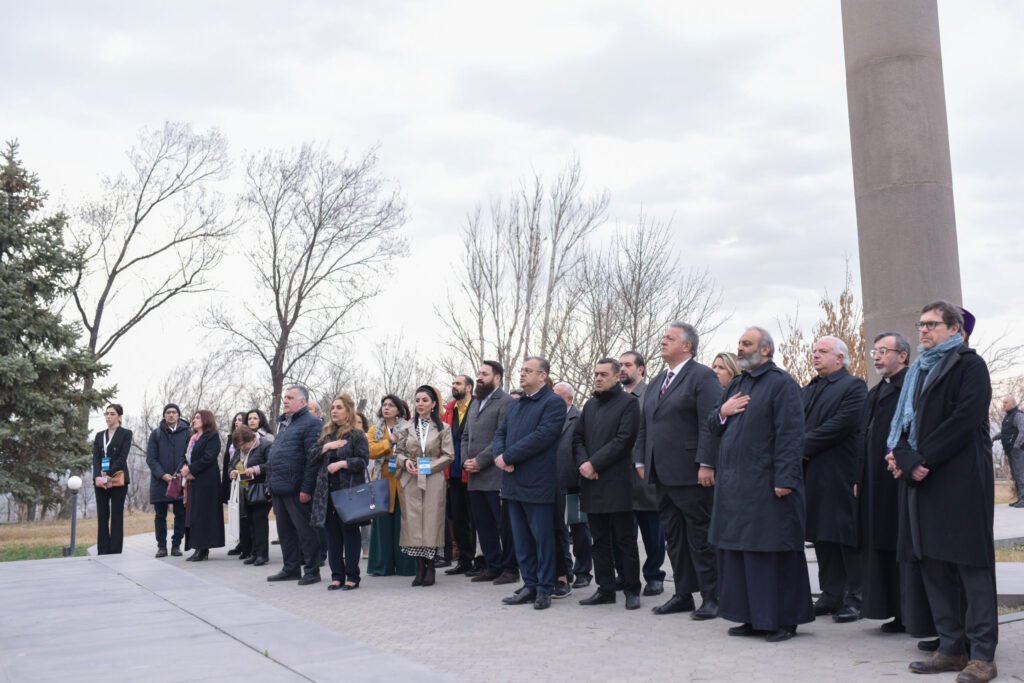
The second day of the forum started at Yerablur Military Pantheon, where guests paid tribute to the nation’s fallen heroes. Participants continued discussions on Armenia-Diaspora unity and focused on the following question: how can we build a strong and effective system of Armenia-Diaspora relations based on shared principles and practical foundations? The expert group was led by editor-in-chief of Aravot newspaper Aram Abrahamyan.
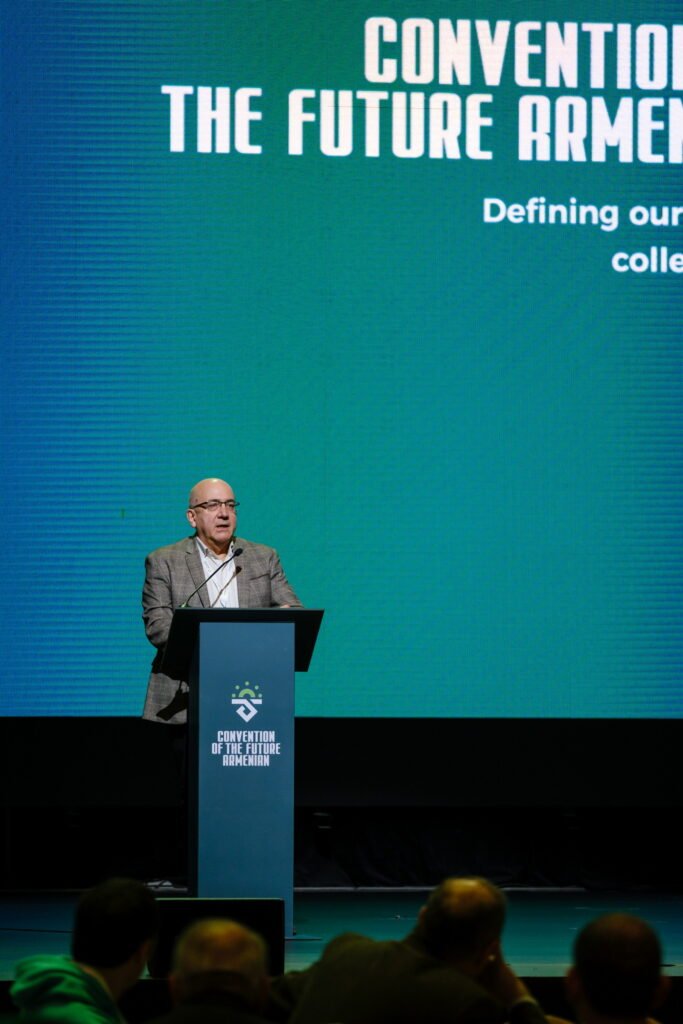
The group noted that since the independence of Armenia, the Diaspora had significantly impacted the establishment of the state and that, today, Armenia-Diaspora relations are in a crisis. Participants concluded that the conference signaled the feasibility of restoring trust between the homeland and its Diaspora; however, there is a dire need for new cooperation platforms, because unity will amplify the results.
Another key issue is the preservation of the Diaspora. The group noted a lack of support systems for Armenian communities in the Diaspora today. The experts discussed ideas about the efficiency of the Office of the High Commissioner for Diaspora Affairs. Experts agreed on the importance of unity so that Armenia speaks “unanimously” to the Diaspora.
Participants voted for the creation of a cooperative network of businessmen, which would unite Armenian businessmen from different parts of the world under one structure. Participants also voted in favor of a fund that would regularly send Armenian language teachers from Armenia to Diasporan communities.
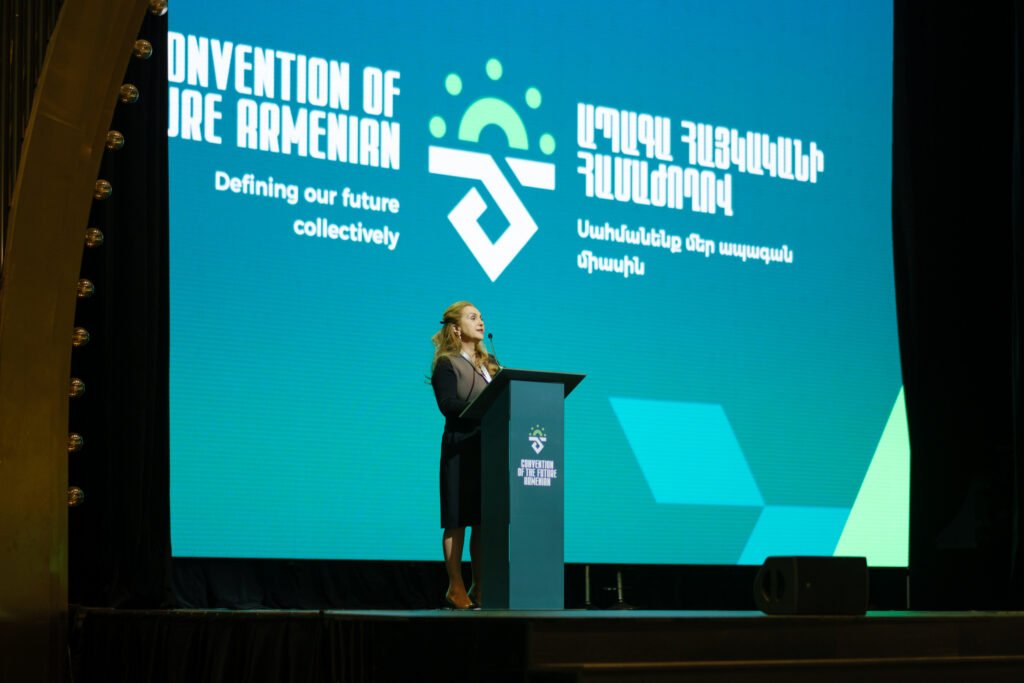
On the last day of the forum, population growth was discussed. The expert committee was led by Armine Hovhannisyan, director of the Orran charitable foundation. Discussions centered on understanding the necessary ways to guarantee Armenia’s stable future and overcome demographic challenges. According to the experts, the current demographic trends in Armenia are not very positive. The situation is concerning both for birth and emigration rates. Estimates show that if the current rates remain unchanged, by 2050 the population of Armenia will be about 1.9 million; in the year 2100, one million. Participants set out to establish demographic goals which should be achieved through state policies and broad public support. As a result of the discussions, the participants of the forum concluded that the implementation of the population growth goal should be achieved through programs and initiatives directed toward increasing the birth and immigration rates, as well as reducing emigration through large-scale advocacy and awareness mechanisms.
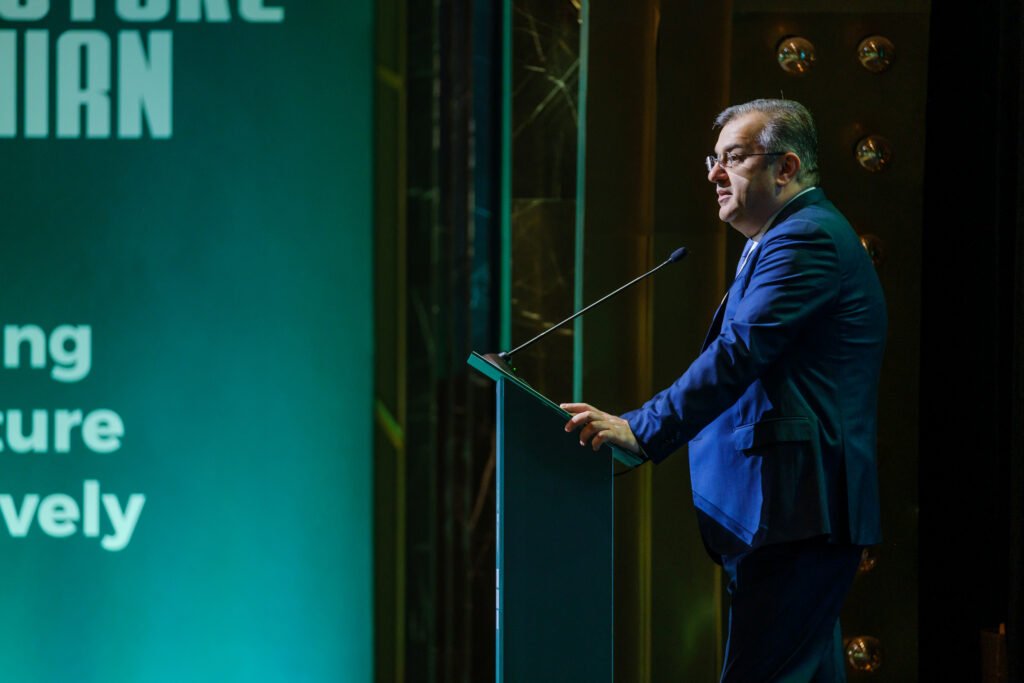
In his speech at the closing ceremony, Apitonyan noted that more than 2,000 proposals were made during the forum. Those proposals will be developed further and will become a basis for more in-depth, sustainable programs. A final report of Future Armenian will be prepared and made available to the public. “One of the most important issues is the establishment of the pan-Armenian dialogue, from small organizations to governmental bodies, and attempts to continue it. But even more important is the following question: how can we influence the existing structures so that they adopt these programs, and how much can we as a society contribute to the implementation of these programs?” wondered Apitonyan. “It also depends on you [the participants of the forum]. From now on, you are the ambassadors of the Future Armenian initiative. Our goal is to expand so that together we can take ownership of our future, make our ideas come true and leave a successful and happy country to the next generations,” he stated.


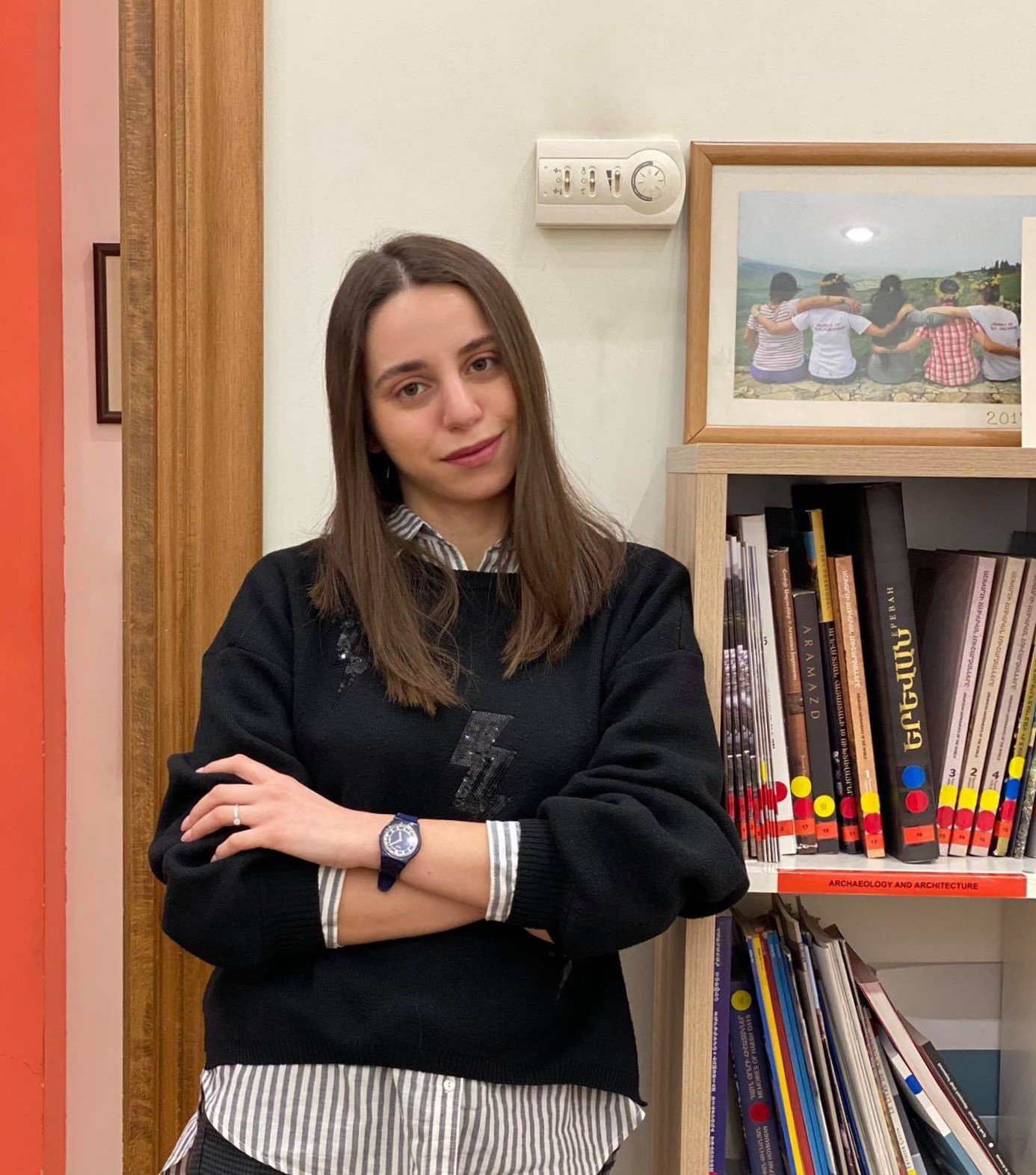
While Armenia population decrease at the same time helping our suffer community in syria sending money to them where is so dangerous and unstable for christians short and long term very unnecessary this fund could use to repatriate armenians syria to armenia,what happened to kesab syria its used to be entirely armenian populated town everything destroyed now fully inhabited by arabs everything gone houses churches we really dont need diaspora in middle east we responsible to bring them to Home its ARMENİA
YASIR ARAFAT SAID NOT TO CREATE A PALESTINE OUTSIDE OF PALESTINE TO KEEP THE STRUGGLE ALIVE AND FORCE REPATRIATION TO PALESTINE. ARMENIANS HAVE CREATED MINI-ARMENIAS OUTSIDE OF ARMENIA SO NOW THEY DON’T CARE ABOUT REAL ARMENIA. STOP BUILDING ARMENIAN CHURCHES, SCHOOLS, SOCIAL HALLS, AND RESTAURANTS IN THE DIASPORA!!! EVERY ARMO WANTS TO MOVE TO GLENDALE! I REALLY DON’T UNDERSTAND OUR PEOPLE.
Most people just want to live a good life and raise a family. The living standards are better in USA.
You are correct Gurgen Savoyan, diaspora needs to empty of Armenians and all Armenians need to live in Armenia. We have had a 3000 year old history and we want to continue having a state for the next 3000 years. Armenian history did not start with the genocide. We had kingdoms and other catastrophes besides the genocide. If Armenians are to be around for the next 3000 years, it is only going to happen if they live in Armenia and not in diaspora.
Also regarding building churches, schools, other structures, you are absolutely correct: these structures will be abandoned and forgotten once Armenians assimilate. We have hard evidence of this happening when we look at old Armenian communities such as the ones in India, Singapore, Julfa, Poland or even Detroit, USA. Wealth of diaspora needs to transfer and be concentrated in Armenia, now that there is an independent country (there was not one prior to 1991) so that it would benefit the nation and future generations of Armenians instead of vanishing into thin air if that wealth stays in diaspora.
Schools are learning institutions and they should never be eliminated. In fact, they should be the focus of any Diaspora community and should be increased. Schools can act against assimilation by teaching the language which is one of the most important part of any culture. Language is much more than a form of communication alone as some preach or would like you to believe. It is by which people relate to one another and build relationships and create a sense of community.
Social halls are also important to any Diaspora community. That is where people can congregate and interact with one another. A familiar place where issues important to the community as a unit can be addressed and solutions offered and resolved. They can also be used to introduce, teach and promote culture.
Restaurants can be a place to introduce and offer our cuisine to those outside of our ethnic group. Food tends to bring people together regardless of their ethnic background which can be a way to familiarize Armenians and their culture to those among whom they live. It can act as a catalyst to raise curiosity about our nation.
Churches cost a lot of money to construct and are used the least. They are not used on daily basis and mostly used for wedding and religious ceremonies. Every Armenian community should of course have a church or two where worshipers can congregate to pray as well if they so wish but we don’t need one in every corner so to speak. Generally speaking, religion does not recognize nationality or ethnicity and therefore without the knowledge and practice of one’s culture and the command of the language we are only raising good or even devout Christians and very little of anything else!
We must teach steps as to how to motivate, inspire and motivate our communities. It is important not only for solidifying communities but to teach true 21st leaderships skills that will propel individuals to excel in their daily lives. Every child, teenager, young adult must benefit by learning about the values of Identity, true purpose, and building relationships locally as well as on an outreach basis.
Though the whole globe should undergo population control, It should not apply to Armenians, For the Ottomans did the control of the Armenian population one century ago by the horrible massacring of three-fourths of the Armenians who had numbered about two million in 1915. Had the Armenians lived then, they should have counted around twenty million by now. So Armenian politicians should aim at a population of around 15 to 20 million of the total global population of 500 million suggested by Bill Gates.
Armenia has to address its military situation with regard to the the disgusting loss of the last Artsakh war. What weapons do we need? What is our financing source? Are we capable of raising weapons that can pose a threat to Azerbaijan and Turkey? Then we can have an industrial and technology base and maybe an intimidating presence. Whenever I visit Armenia very few people are happy. It’s a beautiful country, but how do we keep it? Maybe the Almighty this time will send an Armenian Messiah for our real and eternal salvation.
The Armenians are an intelligent race, but they are poor are gathering intelligence; I have not heard of an Armenian spy.
Boghos L. Artinian
https://en.wikipedia.org/wiki/Gevork_Vartanian
https://culture.pl/en/article/the-spy-who-started-cafe-culture-a-secret-polish-history
STOP FOR A SECOND AND YOU WILL FIND IT ON GOOGLE
I couldn’t believe that there were over 2000 proposals during the meeting.
Aliyev and Erdoghan are treatening to wipe us and Armenia forom the face of the earth and daily causing skirmishes in our border towns and Artsakh taking over more and more territories from Armenia and Artsakh and we are talking about 2000 proposals.
I thought they should have had the wisdome of concentrating on the most iportantant isuues that Armenia and Artsakh are facing now and not wander in the LaLa land.
Just another waste of time and money giving natives in Armenia a false sense of hope.
With our motherland being always physically in danger, Armenians in the diaspora should form a global, non- territorial government that may take care of all Armenians on the globe, physically, politically, culturally and financially.
Boghos L. Artinian MD